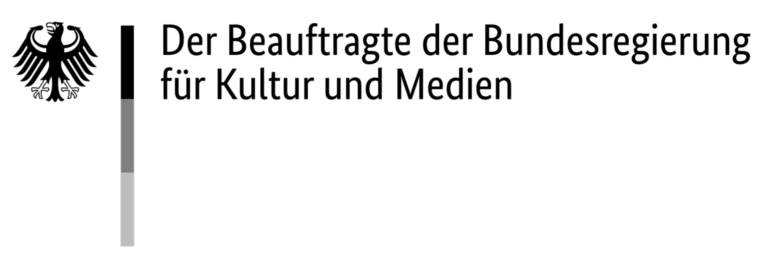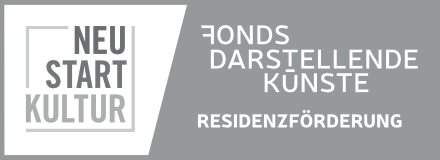
What symbols and myths shape the formation of nations, and how does national self-representation operate in the Middle East? To what extent are these questions interconnected with classical mass media, such as radio and television? Anderer Kunstverein, with its focus on socio-cultural, avant-garde, and radio practices, joined forces with the Rousl Studio, which previously functioned as a pirate “Rubble-Radio” near Damascus. Together, Saeed Albatal, Martin Basman, Ferdinand Klüsener, and Reem Helou embarked on a collective exploration of Syrian media history.

Radio broadcasting commenced in Syria in 1946, with its precursors dating back to 1942. Television became available in 1960, and to this day, both mediums remain highly centralized and state-controlled. As we prepared for our residency at Theaterlabor Bielefeld, we delved into analyzing specific historical events and how they were portrayed through state media and independent channels. Our focus eventually centered on the announcement of the death of dictator Hafiz Al Asad (1930-2000), a pivotal political media event that highlighted a moment of political uncertainty in a country marred by numerous coups and power transitions. We sought to understand how Syrian media handled this event and what insights it could offer about the prevailing political circumstances.

During our initial week at Theaterlabor, we devoted our time to research and the development of a comprehensive project structure. This included creating a dramaturgy and outlining a sequence of scenes, as well as designing stage drafts and a mood board. We diligently collected research and audio materials, organizing the workflow for the residency to shape the project. Building on this foundation, we will conduct targeted experiments with more intricate stage setups and arrangements in the weeks to come.

Throughout the long twentieth century, radio and theater have consistently intersected in influential artistic experiments. Notable examples include Bertolt Brecht’s (1898-1956) “Der Ozeanflug” (1929), Antonin Artaud’s (1896-1948) “Pour en finir avec le jugement de dieu” (1947) and Milo Rau’s (*1977) “Hate Radio” (2013). These works exemplify the exploration of the dynamic relationship between radio and theater. And this synergy extends to public broadcasting in Germany, where a substantial number of radio plays continue to draw inspiration from contemporary art methods and practices, as well as being entirely grounded in performance and theater projects. During our first week, we focused on narrowing down and analyzing various influences, seeking their potential use value for our project as well.

flausen+headquarters
Alexanderstraße 124
26121 Oldenburg
flausen+gGmbH
Klävemannstraße 16
26122 Oldenburg
Das überregionale Netzwerk flausen+ wird gefördert von dem Beauftragten der Bundesregierung für Kultur und Medien über das Programm “Verbindungen fördern” des Bundesverbands Freie Darstellende Künste e.V.
Gefördert vom Fonds Darstellende Künste aus Mitteln des Beauftragten der Bundesregierung für Kultur und Medien im Rahmen von NEUSTART KULTUR.
Gefördert vom Fonds Darstellende Künste aus Mitteln des Beauftragten der Bundesregierung für Kultur und Medien.



